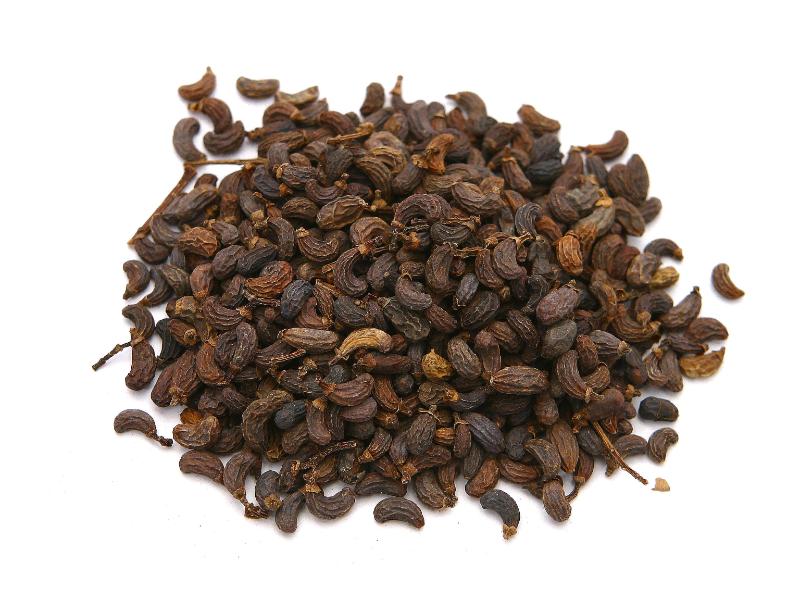Search in medicinals
Ligustri Lucidi Fructus
Ligustrum [fruit]
女贞子 〔女貞子〕 nǚ zhēn zǐ

Alternate English names: Japanese privet fruit wax tree fruit
Alternate Chinese names: 爆格蚤 bào gé zǎo; 白腊树子 bái nǎo shù zǐ
Kingdom: Plant
Origin in PRC Pharmacopoeia: Ligustrum lucidum Ait. (PRC Pharmacopoeia)
Origin in unofficial sources: Ligustrum lucidum Ait.*
Use: Medicinal
Category: Supplementing agents / Yīn-supplementing agents
Properties: Sweet, bitter; cool.
Channel entry: Liver and kidney channels.
Actions and indications: Supplements liver and kidney yīn, blackens the hair and beard and brightens the eyes: Liver-kidney yīn vacuity with dim vision, loss of visual acuity,
Dosage and method: Oral: 5–15g in decoctions or pills; it may also be boiled to make a paste. It is best used in pills because the active constituents are not easily soluble in decoctions.
Warnings: Contraindicated in diarrhea due to spleen-stomach vacuity cold.
Product description: The dried fruit is ovate or oval, sometimes bent or twisted. It is 5–10 mm long, and 3–4 mm in diameter. The exterior surface is blue-black, with wrinkles. Both ends are rounded, and at the base is the scar left by the stalk. This fruit is hard and light. Inside is a single seed, or two seeds isolated in the fruit pulp. The seeds are elliptical and pointed at each end. They are black on the outside and white on the inside.
Quality: Large plump hard blue-black fruits are the best.
Production area: Jiāngsū, Húnán.
Etymology: The name nǚ zhēn zǐ 女贞子, literally female (or wifely) faithfulness seed,
is traditionally understood to mean the seeds of the plant that remains ever green in winter as a good wife remains ever true.